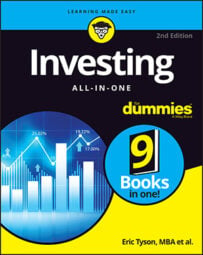Why to buy funds direct
Many reasons exist to buy funds directly from fund companies. Here are a few:- You’re thrifty. And you can take that as a compliment. Being vigilant about your investing costs boosts your returns. By buying direct from no-load fund companies, you avoid the discount brokerage transaction costs.
- You don’t have much money to invest. If you’re investing less than $5,000 per fund, the minimum transaction fees of a discount broker will gobble up a large percentage of your investment. You don’t have to hassle with transaction fees when you buy direct from a no-load fund company.
- You’re content investing through one of the bigger fund companies with a broad array of good funds. For example, if you deal directly with one fund company that excels in all types of funds, you can minimize your fees and maximize your investment returns. Given the breadth and depth of the bigger companies’ fund selections, you should feel content centralizing your fund investments through one of the better companies. However, if you sleep better at night investing through multiple fund companies’ funds, we won’t try to change your mind.
Given the fact that most of the major fund companies, such as Vanguard, Fidelity, and T. Rowe Price, have discount brokerage divisions offering mutual funds from companies other than their own, you could use one of these companies as your base and have the best of both worlds. Suppose, for example, that you want to invest a large portion but not all of your money in Fidelity funds. By establishing a discount brokerage account at Fidelity, all your Fidelity fund purchases would be free of transaction fees; then, through that same account, you could also buy other fund companies’ funds.
Why to buy through a discount broker
Here are the main reasons to go with a discount broker:- You want to invest in funds from many fund companies. In general, different fund companies excel in different types of investments; you may want to build a portfolio that draws on the specific talents of various fund companies. Although you can buy directly through each individual fund company, the point eventually comes where the hassle and clutter just aren’t worth it. The one-stop shopping of a discount broker may well be worth the occasional transaction fee.
- You hate paperwork. For those of you out there whose disdain of paperwork is so intense that it keeps you from doing things that you’re supposed to do, a discount broker is for you.
- You want easy access to your money. Some discount brokerage accounts offer such bells and whistles as debit cards and unlimited check-writing privileges, making it simple for you to tap in to your money. (That can be a bad thing if this tempts you to spend your money!)
- You want to buy into a high-minimum fund. One unique feature available through some discount broker’s fund services is the ability to purchase some funds that aren’t normally available to smaller investors.
You have a way (that involves hassle) to buy and sell your funds and use a discounter but reduce the total transaction fees: Purchase your funds initially from the mutual fund company and then transfer the shares at no charge into a discount brokerage account. Conversely, when you’re ready to sell shares, you can transfer shares from the discounter to the mutual fund company before you’re ready to sell.

